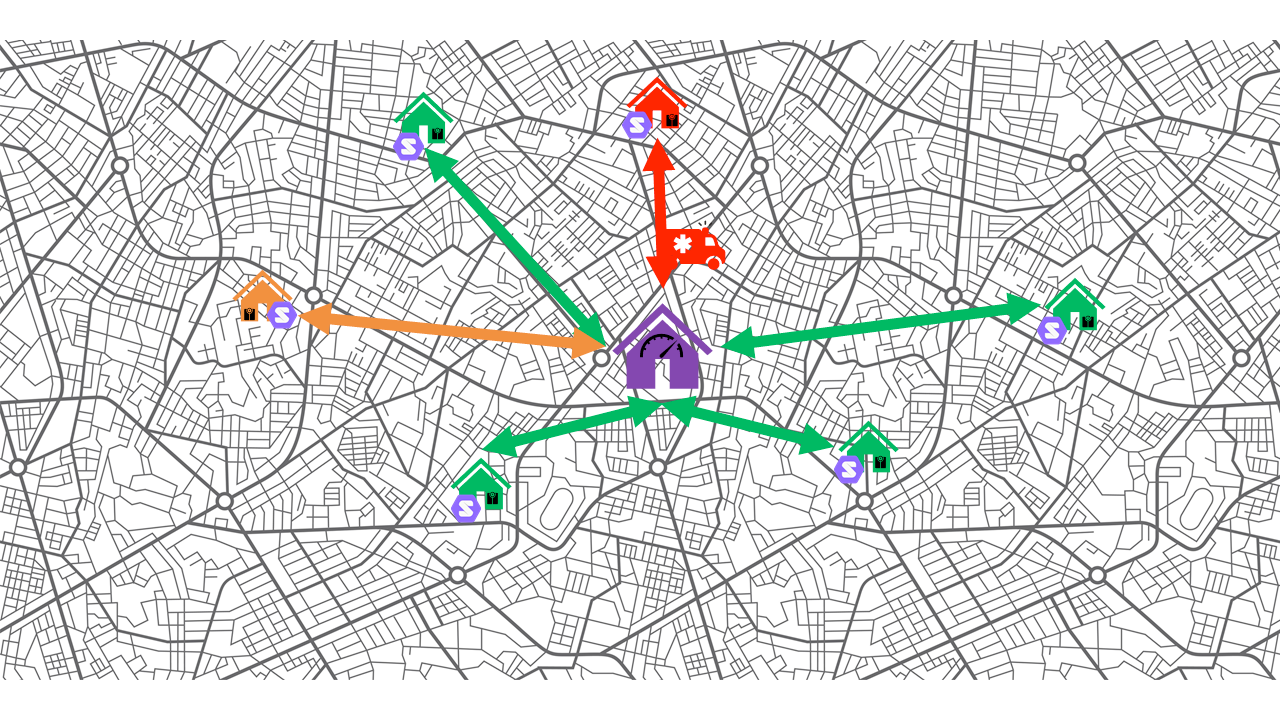Enabling better care for those in need, whilst keeping control of your own data: A Solid-based Approach
Keywords: Artificial Intelligence, AI, Solid, Web, Knowledge Graph, privacy, Data Vaults, Healthcare, decentralized, ehealth, health, hospital, semantic
Promotors: Femke Ongenae, Pieter Bonte
Students: max 2
Problem
Solid is an exciting new Web development, initiated by Prof. Sir Tim Berners-Lee, MIT, inventor of the World Wide Web, radically changing the way current Web-based applications work. It facilitates true data ownership, ensuring improved privacy, and this in an interconnected world. The need for such a new approach is also recognised by the Flemish Government and underlined with the establishment of The Flemish Data Utility Company. (https://www.vlaanderen.be/digitaal-vlaanderen/het-vlaams-datanutsbedrijf/the-flemish-data-utility-company). After all, our personal data in all its forms and shapes (whether it be holiday pictures, personal contact details or health information, etc.) is currently stored, maintained and used by a multitude of companies. Keeping this data consistent amongst the companies involved (e.g. the change of a living address can be cumbersombe to get 100% correct with all parties involved) is one challenge. Keeping track of who has access to which data is another challenge. And what happens if you change service providers and want your data to be unaccessable for the provider you leave? Also, in an e-Health related setting these challenges can be found. It is true, steps have been taken a.o. in Belgium to solve this issue, but let's be honest, there is much room for improvement. Your GP maintains your Global Medical Record (GMD), your dentist has its own records (this is out-of-scope of GMD), so does you physiotherapist, the medical laboratory, the hospital you have been visiting, radiology and medical imaging providers, etc. All of them keep information, which ultimately is your own personal information. Platforms such as COZO, mijngezondheid.be, Vitalink or Helena.Care try to give the individual a transparent view of all the information that is currently known by the stakeholders. But the main question remains: Why does all this information have to be kept and maintained by all these actors? Would it not be better for the individual to come back in control of his or her own data? This is where Solid could prove the way forward.

Goal
In this thesis, you will be researching such a Solid-based approach not only for the sharing of medical (care) information of individuals, but also helping to improve the level of care currently being given to those most in need, e.g. elderly people, people with disabilities or following-up after surgery. In this day and age of ever greater strain on our healthcare system, ensuring that people can stay at home longer is of paramount importance. Of course, this should be supported in a safe and secure manner, so that the fact that someone is not hospitalised because of changing societal priorities does not negatively effect the well-being of that person. To support this, the sharing of medical information which can be trusted to be correct to those that need it is very important. But it can be more than that. Elderly persons or people in rehabilitation, a.o. oftentimes also need indivualised follow-up about their progress en general well-being. Doing this in a home setting, rather than in an institutionalised one, can have a positive effect on the individual, but also bears a potential risk in e.g. proper therapy adherence. However, IoT-related technologies can help in these situations. Wearables, smart appliances or sensors in general can be deployed in the home setting to gather the necessary data about that individual's daily activities or therapy adherence. Obviously, one wants this data and the derived information only to be available for those that are allowed access. Additionally, sensors come and go, and as such, data availability will change over time. We believe that a personal data-vault approach, as envisaged by the Solid community, is the ideal technology to support this use case. Having said that, research is needed to create a scalable, secure and user-friendly solution, where the interaction between the individual and the Solid pod is as transparent, low maintenance and intuitive as possible.